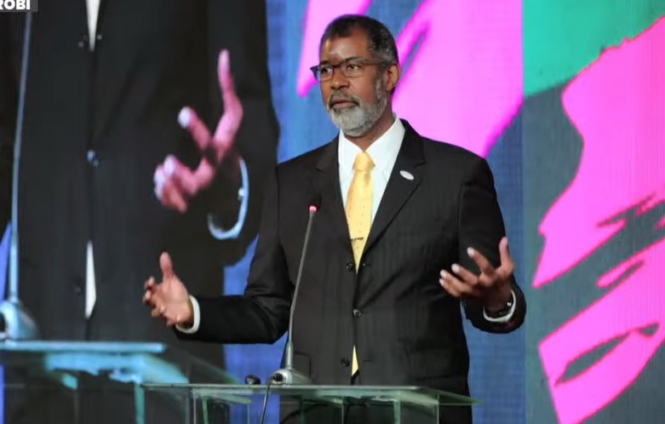The Director-General of the Nuclear Energy Agency (NEA) of the of the Organisation for Economic Co-operation and Development (OECD), Mr. William D. Magwood, IV, has made an impassioned plea for Africa to fully embrace nuclear energy as a crucial component of its future development.
Speaking in Nairobi at the ongoing US-Africa Nuclear Energy Summit, Mr. Magwood highlighted the critical role of electricity and skilled people in shaping the future of economies, emphasising that Africa should not be left behind in the global nuclear revolution.
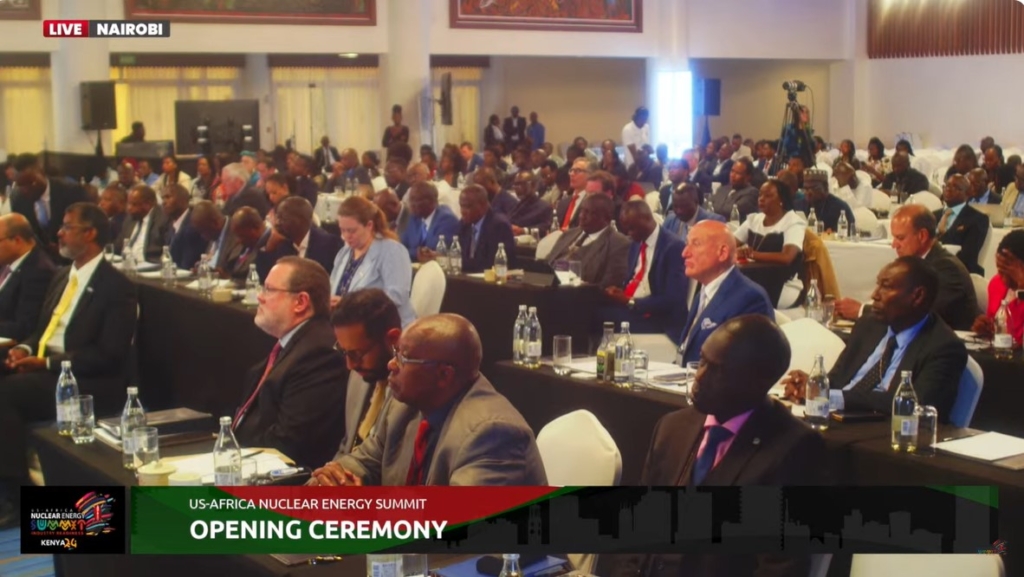
“The world has changed in a very, very substantial way,” Mr. Magwood said, emphasising that the future success or failure of economies, societies, and countries will depend on two key factors: people and electricity.
"If you don't have trained people, you will not be successful. If you don't have electricity, reliable, cost-effective electricity, your economies will not prosper," he counselled.
Mr. Magwood addressed the global climate crisis, acknowledging that many countries initially believed that simply increasing renewable energy sources would suffice.
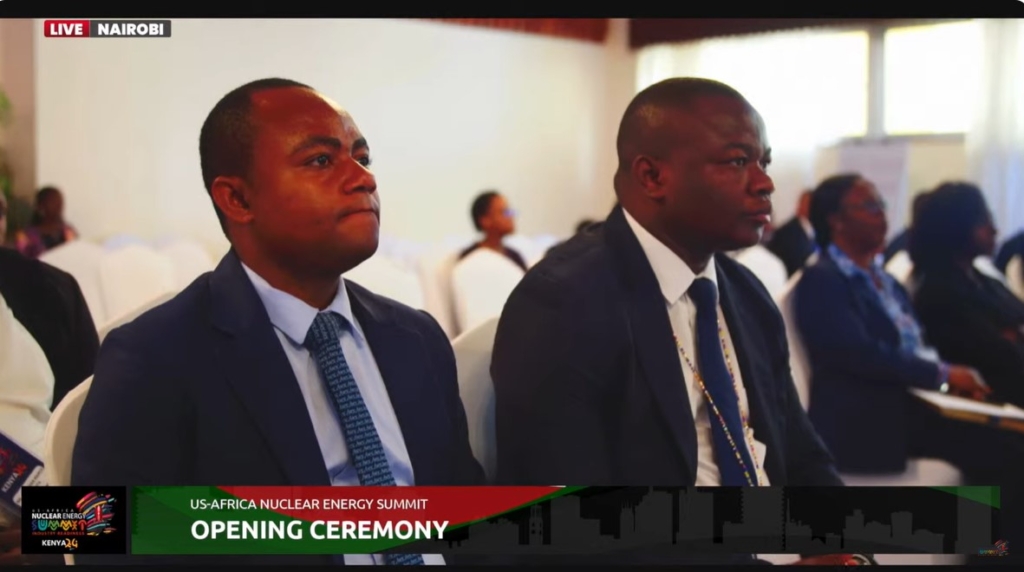
However, as nations struggled to meet their climate goals, it became clear that nuclear energy would be essential.
“That’s why at COP 28, we saw 25 leaders come together and declare a need to triple nuclear capacity,” he noted, adding that this global shift towards nuclear energy was not surprising to the NEA.
He also tackled the often negative perceptions surrounding Africa’s readiness for nuclear energy, and recounted a conversation with a Kenyan woman who expressed doubts about Africa’s ability to manage nuclear power, citing corruption and instability.
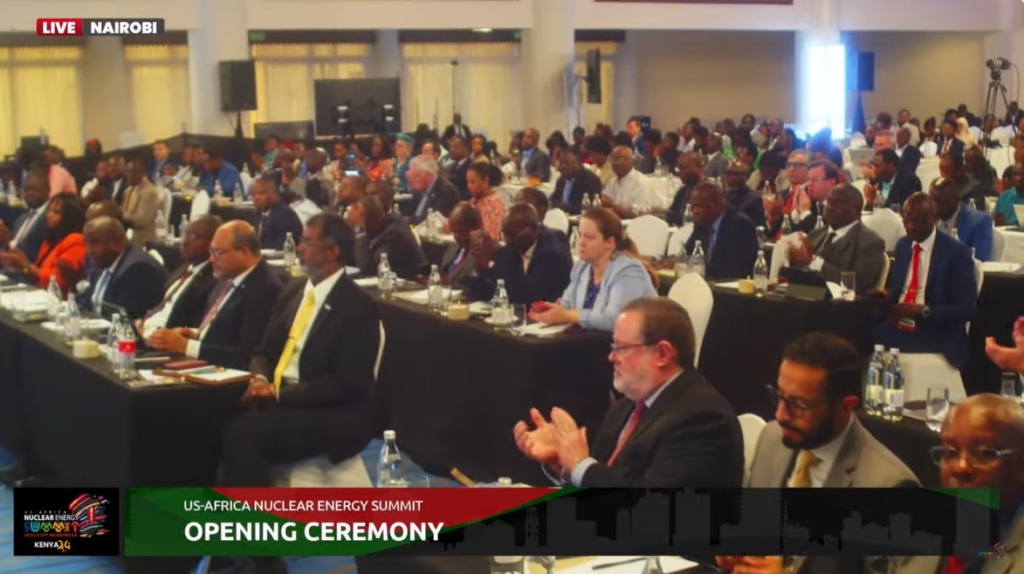
"These are the perceptions, both outside Africa and inside Africa," he said, acknowledging the real challenges while also pushing back against the notion that they are insurmountable.
Drawing on historical examples, Mr. Magwood reminded the audience that the United States and South Korea, now leaders in nuclear energy, once faced similar doubts and challenges.
He questioned whether everybody that ran nuclear power plants when the United States started pursuing nuclear power were experts, pointing out that “They were not."
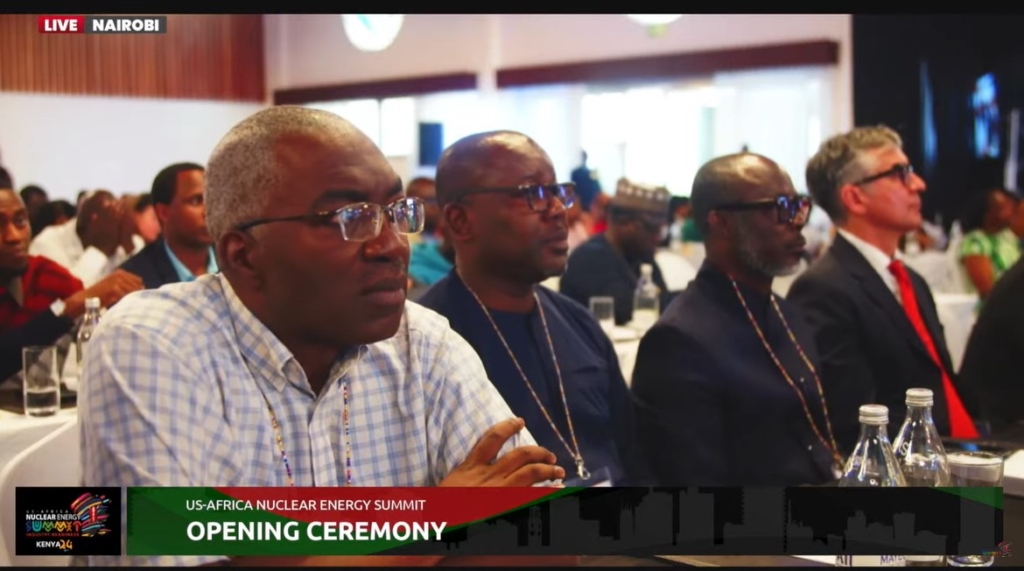
Mr. Magwood also highlighted South Korea’s transformation from one of the poorest countries to a global leader in nuclear technology within just a few decades, saying "When people tell you that Africa is in these terrible positions, that may be true today, but it's not necessarily true for the future," he asserted.
In what he christened "Our Common Journey," Mr. Magwood announced plans by the NEA to build cooperative frameworks within Africa, focusing on key areas such as expertise and knowledge at the ministerial level, stakeholder engagement, gender equality, and human capacity building.
He also emphasised that the NEA's goal is to foster cooperation among African nations, drawing parallels with successful collaborations among NEA member countries.
"We are here. We are not going to leave," Mr. Magwood declared, underscoring the NEA's commitment to Africa's nuclear future.
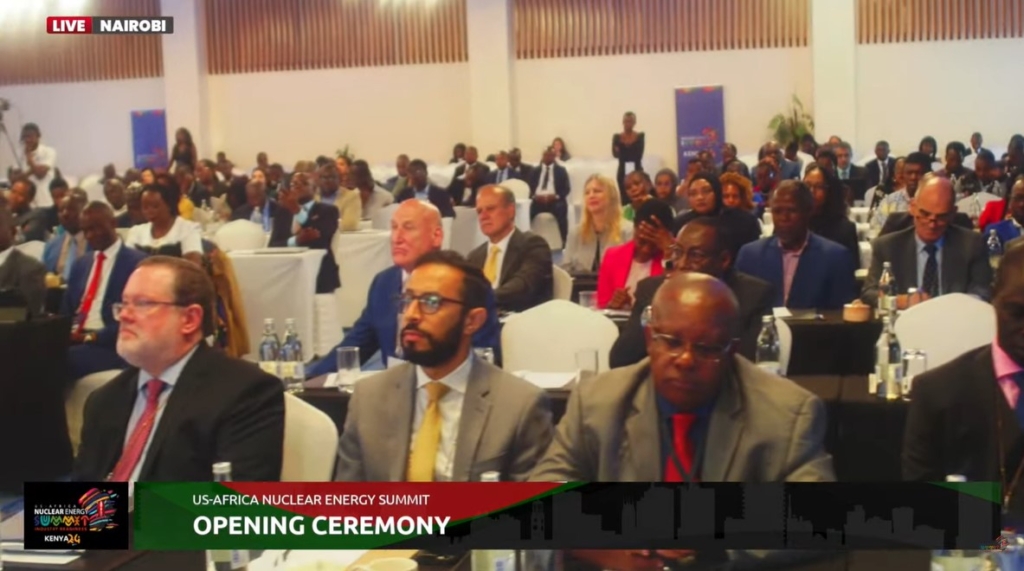
He expressed optimism about Africa's potential, highlighting the continent’s human resources as a significant asset. "People are an asset. You have people; use that asset, and we can help you with that."
The US-Africa Nuclear Energy Summit in Kenya is the second and it follows the maiden edition held in Accra, Ghana, by the US Department of Energy (DOE) in collaboration with the Nuclear Power Institute (NPI) of the Ghana Atomic Energy Commission.
It groups policymakers, technical experts, and industry leaders from the US and Africa who will aim address the critical issues facing the region in adopting nuclear energy power.
Ghana has reached two major agreements, including a corporation and framework agreement between Nuclear Power Ghana (NPG) and the China National Nuclear Corporation Overseas Limited for the construction of a large reactor project and upgrading Ghana’s grid infrastructure to accommodate additional power generation.
An MoU has also been signed between the Ghana Atomic Energy Commission (GAEC) and the US to establish a regional welding certification programme in Accra, as part of Ghana’s nuclear power efforts.
Latest Stories
-
‘Not qualifying for AFCON is not a failure’– Lawrence Agyekum
9 minutes -
The Republic of Double Standards: Why you can chop at 16 but can’t carry the chop box to marriage until 18
35 minutes -
Ghana Para Athletics Association launches nationwide talent hunt to discover future champions
42 minutes -
FoSCel hosts national forum on Sickle Cell at UEW: Calls for unity, awareness and policy action
1 hour -
‘I dreamt of scoring my debut goal against Nigeria’– Lawrence Agyekum
1 hour -
‘Nothing tells me we won’t qualify’ – Stephen Appiah confident in Black Stars’ World Cup chances
1 hour -
Ablakwa urges Israeli Ambassador to respect Ghana’s sovereign right to make independent decisions
1 hour -
We will give everything to qualify for 2026 FIFA World Cup – Lawrence Agyekum
2 hours -
Advisory | Ghana’s credit ratings upgrade: A vote of confidence, but not a passport to borrow
2 hours -
Health Accounting Staff Association agitates over delayed negotiations
2 hours -
Joy Prime launches ‘PrimeTime’ with George Quaye, as Samini sets tone with bold remarks on justice and leadership
2 hours -
More businesses set to reduce prices from July 1, 2025 – GNCC CEO
2 hours -
Government urged to extend validation for payment of trainee nurses and midwives’ allowances
2 hours -
Afreximbank Chief Economist urges Ghana to lead Africa’s trade agenda ahead of IATF 2025
2 hours -
Foreign Minister engages Israeli and Iranian Ambassadors over Middle East conflict
3 hours

